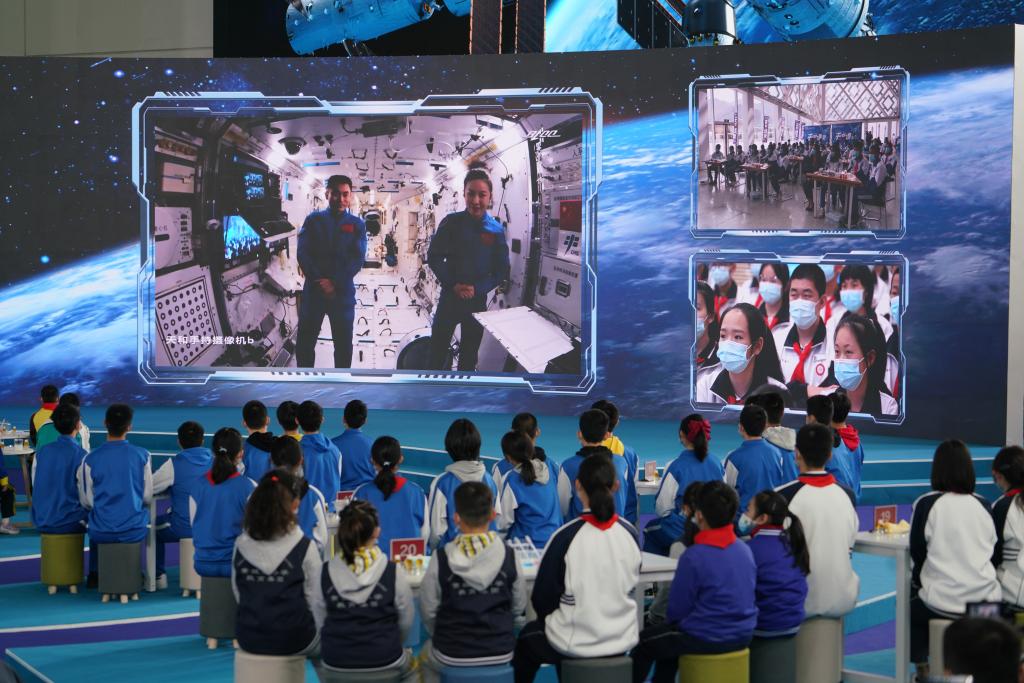China to boost science popularization by highlighting cyberspace, social funds
 0 Comment(s)
0 Comment(s) Print
Print E-mail Xinhua, September 6, 2022
E-mail Xinhua, September 6, 2022

China will further promote science popularization by highlighting the roles of cyberspace and social funds, according to Li Meng, vice minister of science and technology, at a press conference Monday.
The country will strengthen the coordination of over 40 government agencies to jointly implement a newly issued official document on the work of science and technology popularization in the new era, said Li.
Cyberspace has become a key area of science popularization work, said Li, adding that the network-based science popularization teams should receive support and encouragement to improve their scientific nature and services.
"The science popularization media are evolving from print and exhibition boards to digital and intelligent means, integrating both offline and online media," he said. "The fast upgraded information and media technologies are facilitating the spread of sci-tech knowledge in both content and methods."
At present, more than 80 percent of science information is spread via network channels, such as websites, Weibo and WeChat.
Li also said the country will encourage and guide more social funds to invest in science popularization work in various ways, such as building sci-tech museums, establishing related foundations, or setting up related forums with international influence.
So far, government funds have been a major source of finance for China's science popularization work. In 2020, the country's total expenditure on science popularization was 17 billion yuan (about 2.45 billion U.S. dollars), of which 80 percent was from government allocation.
China now has a total of more than 1,500 sci-tech related venues, which falls far below public demand.
In the past decade, China has continued to improve science education and training, develop facilities for science popularization, and increase investment in this regard.
According to the action plan for science literacy of the people (2021-2035) issued in 2021, China will invest major effort in five key projects: popularization of sci-tech resources; the promotion of popular science; popular-science infrastructure; the promotion of popular-science ability at the grass-roots level; and international exchanges and cooperation.






Go to Forum >>0 Comment(s)